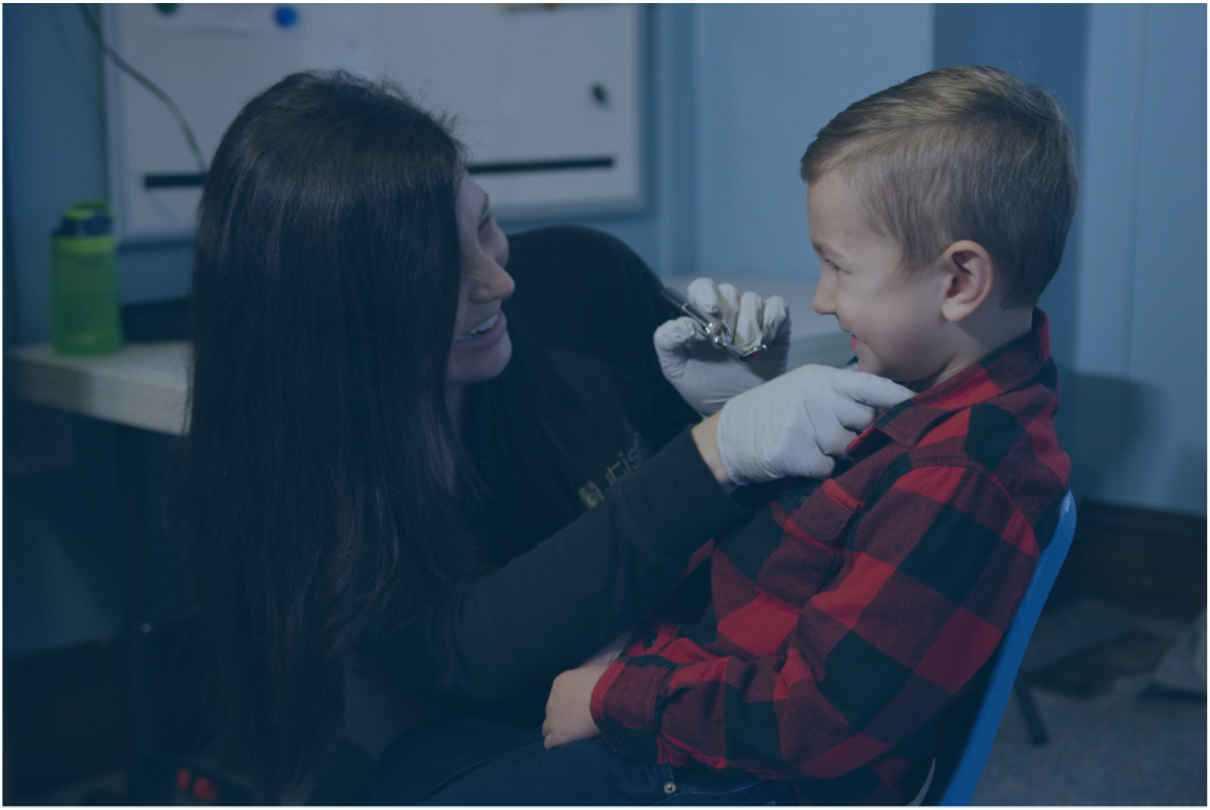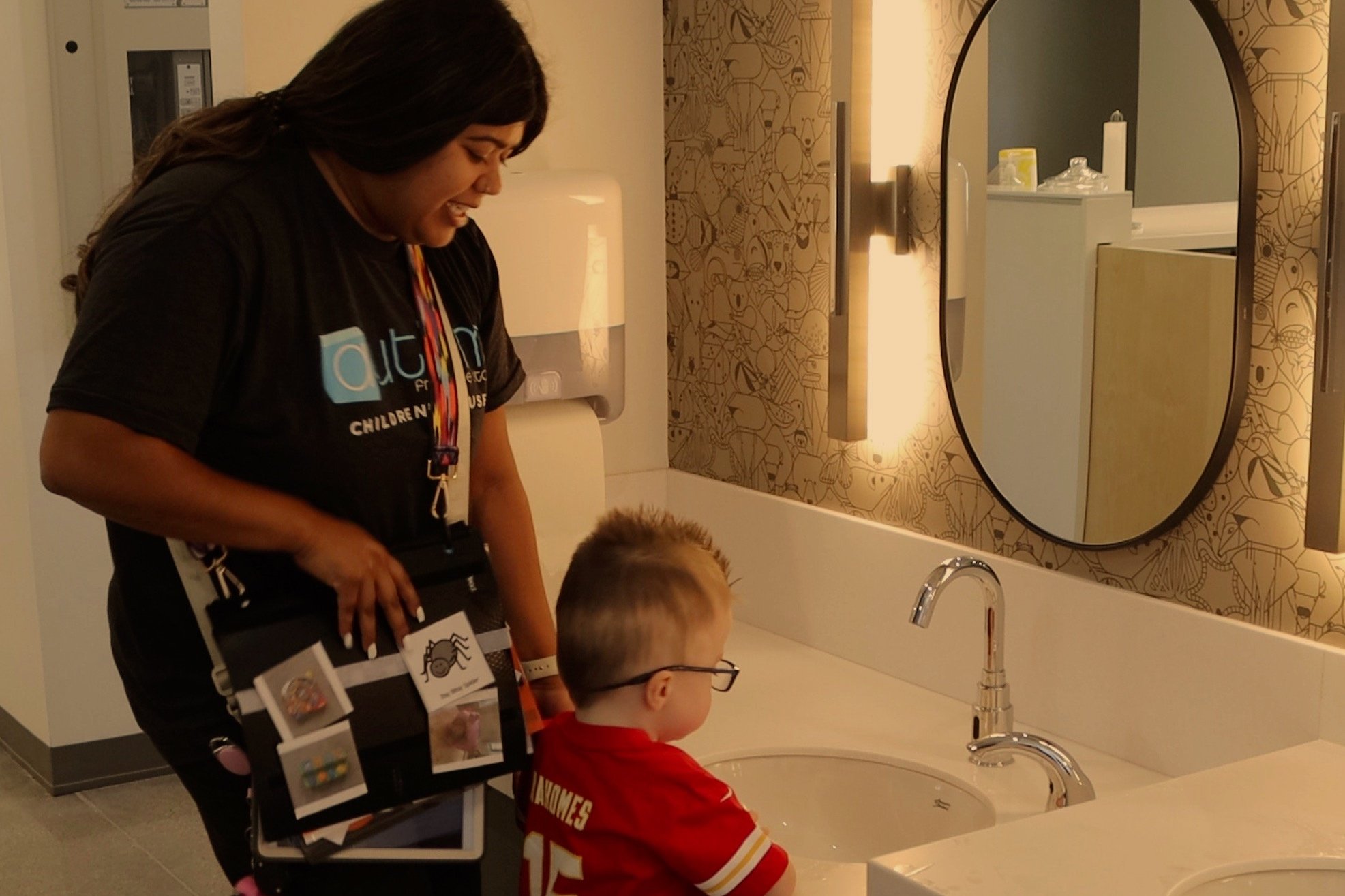Everyday Tasks
Building Independence Through Practical Life Skills
At Autism From The Start, we understand that everyday tasks, such as getting dressed, brushing teeth, or eating meals, can be challenging for children on the autism spectrum. That’s why daily living skills are an essential part of every child’s Plan of Care in our therapy programs.
By focusing on functional, real-world skills, we help children develop independence, build confidence, and navigate daily routines with greater ease. Our approach integrates structured teaching, sensory accommodations, and hands-on practice, ensuring that each child feels comfortable and successful in their daily activities.
Why Everyday Life Skills Matter for Children with Autism
Children on the autism spectrum may experience sensory sensitivities, motor coordination challenges, or difficulties with routine changes, which can make simple tasks feel overwhelming. Our goal is to help children:
Gain confidence in self-care routines and daily responsibilities.
Develop the motor and sensory tolerance needed for tasks like brushing teeth or haircuts.
Learn step-by-step processes to complete activities independently.
Feel more comfortable in real-world settings like restaurants, school, and medical appointments.
By teaching functional skills in a structured, supportive environment, we set children up for long-term independence and success in daily life.
Teaching Tolerance for Sensory Experiences
Routine activities such as dental visits, haircuts, or handwashing can be particularly challenging for children with autism due to sensory sensitivities to touch, sound, or texture. To help children adapt and feel more comfortable, our therapists use gradual exposure, desensitization techniques, and positive reinforcement to teach:
Tolerance for different textures and sensations (e.g., the feeling of a toothbrush, water on hands, or a hairbrush).
How to handle loud or unexpected noises in public settings (e.g., clippers at a barber shop, the sound of a hand dryer, or a dental drill).
Strategies for reducing anxiety during unfamiliar experiences (e.g., using social stories, visual schedules, and practice sessions).
By practicing these experiences in a controlled, supportive setting, children gain confidence and reduce stress when encountering them in everyday life.
Encouraging Independence in Daily Routines
A major focus of our daily living skills program is helping children gain independence in self-care and personal responsibilities. We teach and reinforce:
Dressing skills – Learning how to put on shoes, zip a jacket, or button a shirt.
Handwashing and hygiene – Practicing proper handwashing techniques, using soap, and drying hands.
Eating with utensils – Transitioning from finger foods to using spoons, forks, and eventually knives.
Toileting skills – Building confidence in bathroom routines, from recognizing the need to go to flushing and handwashing.
Each of these skills is broken down into small, manageable steps so that children can successfully master them at their own pace.
A Personalized Approach to Everyday Tasks
We recognize that every child has unique strengths and challenges, which is why our approach to daily living skills is individualized. Our therapists:
Assess each child’s current abilities and sensory sensitivities.
Develop a personalized plan with step-by-step skill-building strategies.
Use visual supports, social stories, and modeling to reinforce learning.
Work closely with parents to provide home strategies for continued success.
By customizing our approach, we ensure that every child gains the skills they need to increase independence in a way that feels achievable and empowering.
Helping Your Child Gain Confidence in Everyday Life
At Autism From The Start, we believe that learning everyday tasks is about more than just completing a checklist—it’s about giving children the skills, confidence, and independence they need to thrive in their daily lives.
If you’re looking for individualized support to help your child develop practical, real-world skills, we’re here to help.
Contact us today to learn more about our programs and how we can support your child in mastering everyday tasks for lifelong success.











